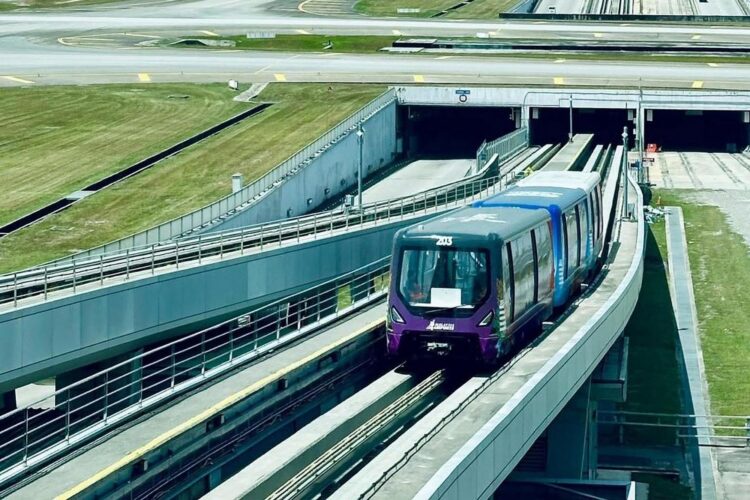The Ministry of Transport (MOT) has confirmed that it will take enforcement action against Malaysia Airports Holdings Bhd (MAHB) following a string of technical disruptions affecting the Kuala Lumpur International Airport (KLIA) aerotrain system. Transport Minister Anthony Loke Siew Fook told the Dewan Rakyat today that the Land Public Transport Agency (APAD), which regulates all rail-based systems in the country, has the authority to act against MAHB despite its status as a government-linked company.
“Even though MAHB is a government-linked company, it is still subject to our licensing regulations,” Loke said. “Therefore, through APAD, we can take action, including imposing fines, if MAHB fails to provide satisfactory service to passengers”. He added that the ministry would hold further discussions to decide on appropriate regulatory measures.

He was responding to a question from Shaharizukirnain Abd Kadir (PN–Setiu), who had asked about accountability measures imposed on contractors and airport management following repeated aerotrain breakdowns. Since resuming operations on 1 July, the system has suffered 20 reported incidents, with the most recent occurring yesterday evening when both trains at KLIA Terminal 1 experienced a temporary power trip at around 8.30pm.
Loke also clarified that MAHB fully finances the aerotrain project under its concession without any government allocation. “There has been some misunderstanding – the aerotrain project is not funded by the government,” he said. “The entire cost is borne by MAHB as the airport operator under its concession.”

Since operations resumed, the aerotrain has transported around five million passengers with a reported service availability rate of 99%. However, Loke stressed that even a single disruption was unacceptable, urging MAHB and its contractors to maintain higher reliability standards.
The system remains under a two-year defects liability period, during which the manufacturer, France-based Alstom SA, is responsible for resolving any faults. MAHB expects to impose penalties on the contractor if it fails to meet performance targets.


